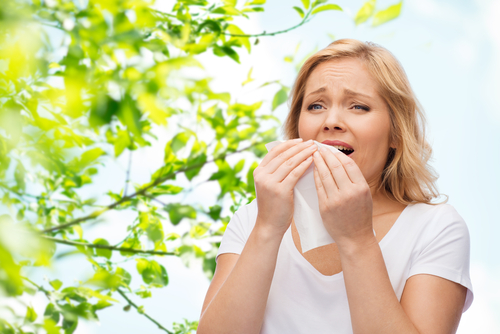An allergen is a typically harmless substance that causes an allergic reaction.
Allergic rhinitis, commonly known as hay fever, is an allergic response to specific allergens. Some typical allergens are grass, dust, and mold. Pollen is the most common allergen.
The body releases histamine when it encounters an allergen. A histamine is a natural chemical that defends your body from the allergen. This chemical causes allergic rhinitis.
Common causes of allergic rhinitis include:
- pollen
- dust
- animal dander (old skin)
- cat saliva
- mold
Pollen is the most common cause, especially during certain times of the year.
Risk factors:
- cigarette smoke
- chemicals
- cold temperatures
- humidity
- wind
- air pollution
- hairspray
- perfumes and colognes
- wood smoke
- fumes


